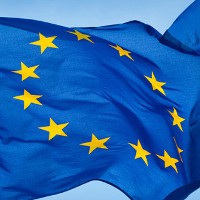While manufacturers have been choosing compliant components for their products, there have been some questions about the accuracy of the materials declarations provided by their suppliers. Some claim that up to 40 per cent of those declarations are inaccurate. That leaves the potential that some products are not as compliant as manufacturers would like to believe.
There are two schools of thought on enforcement. One is that the European Union’s enforcement agencies will come down hard and fast on non-compliant products. The other is that the EU will be reasonable, even gentle, on manufacturers.
“I don’t think the enforcement agencies are out to nail anyone,” said Michael Kirschner, president of the San Francisco-based Design Chain Associates, a consulting firm that helps companies with their compliance strategies. “Steve Andrews of the Department of Trade and Industry [the UK’s agency in charge of RoHS enforcement] spoke at the IPC/JEDEC lead-free conference in March, and he said they’re going to work with OEMs and not try to clobber anyone.”
There is one aspect of enforcement practices that does give Kirschner pause – the equipment they plan to use to monitor products for compliance. “They [the Department of Trade and Industry] just bought hand-held XRF equipment,” noted Kirschner. XRF is x-ray fluorescence spectroscopy. This equipment can detect lead, but its accuracy is questionable.
“This equipment doesn’t have the resolution or accuracy to be the last word,” said Kirschner. “We’re going to see a bunch of inquiries from enforcement agents who say, ‘We detected lead,’ and all they detected is the lead in the ceramic in the capacitors, and that’s exempt.”
Some manufacturers are still not fully compliant with RoHS, but Kirschner believes the non-compliant OEMs are a small minority. “Most companies are pretty confident in their compliance at this point,” he said. “If you look at compliance from dollar volume, most of the industry is compliant. It’s just the smaller companies in the niche markets that are not compliant.”
He notes that some of those small companies may take the risk of sending non-compliant products to Europe, but the large companies will take no risks with non-compliant goods.
Like many experts in RoHS, Kirschner believes the EU will rely on tips from competitors about non-compliant products. “The enforcement agencies will use the strategy of getting intelligence from competitors. Companies have spent a lot of money to be compliant, and they’re not going to let their competitors get away with non-compliance.”
He notes that the claims of non-compliance from competitors will have to be backed up with evidence. “You can’t just tell the enforcement agencies that your competitor’s product in non-compliant,” said Kirschner. “You have to make the case.” As for other sources of tips to the enforcement agencies, Kirschner expects disgruntled employees will also be a source of intelligence on non-compliance.
See also: Electronics Weekly’s roundup of content related to The ROHS Directive
 Electronics Weekly Electronics Design & Components Tech News
Electronics Weekly Electronics Design & Components Tech News
